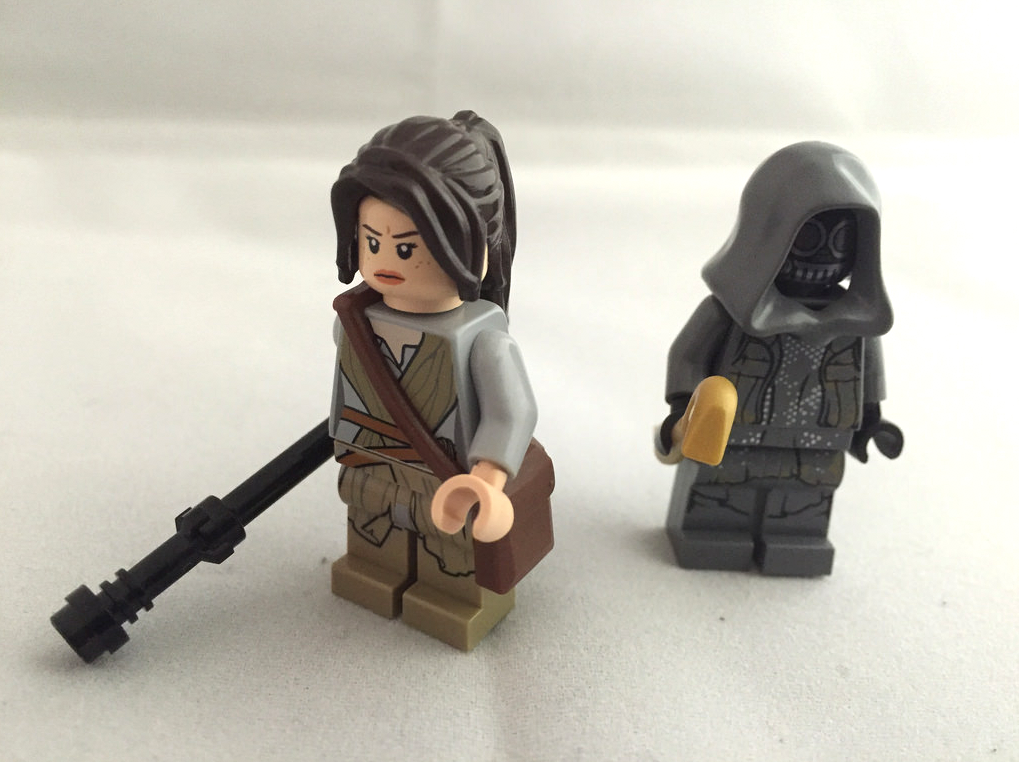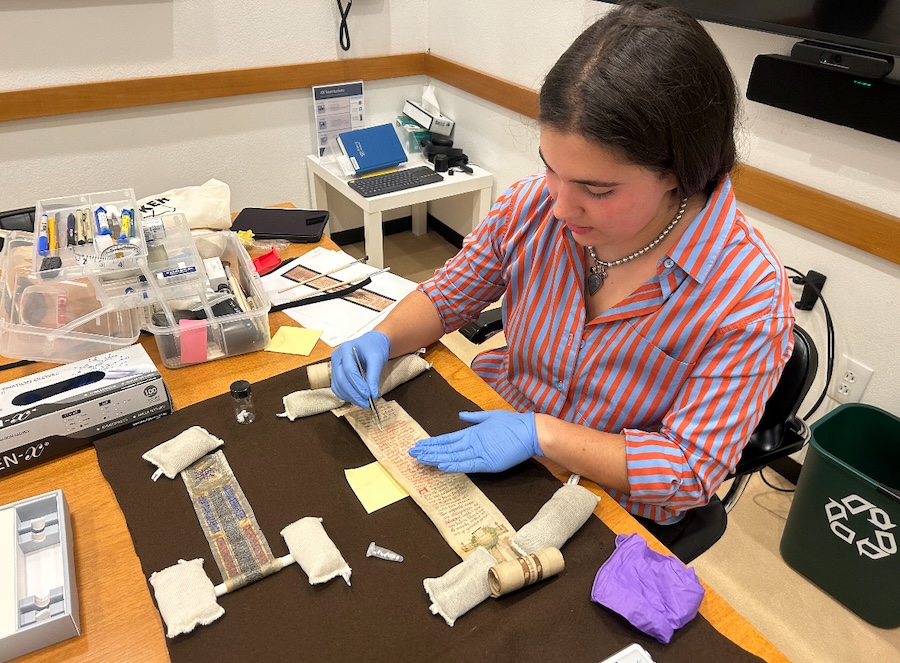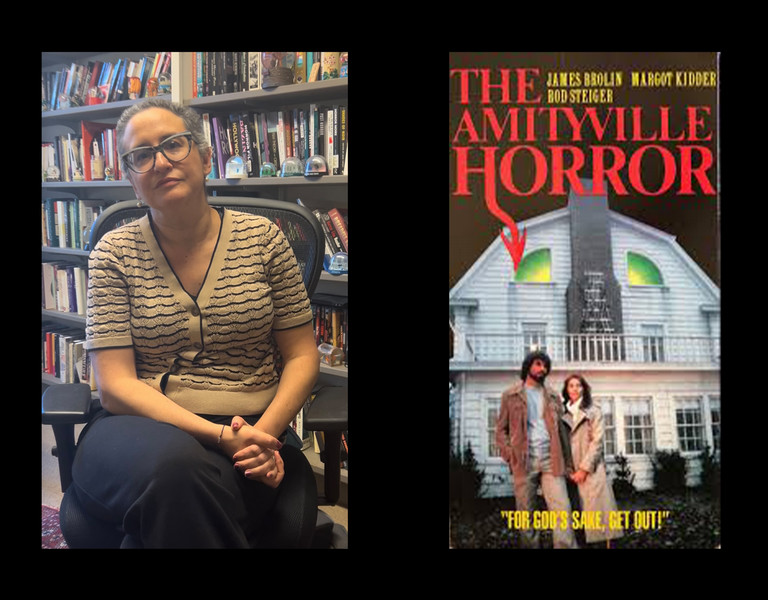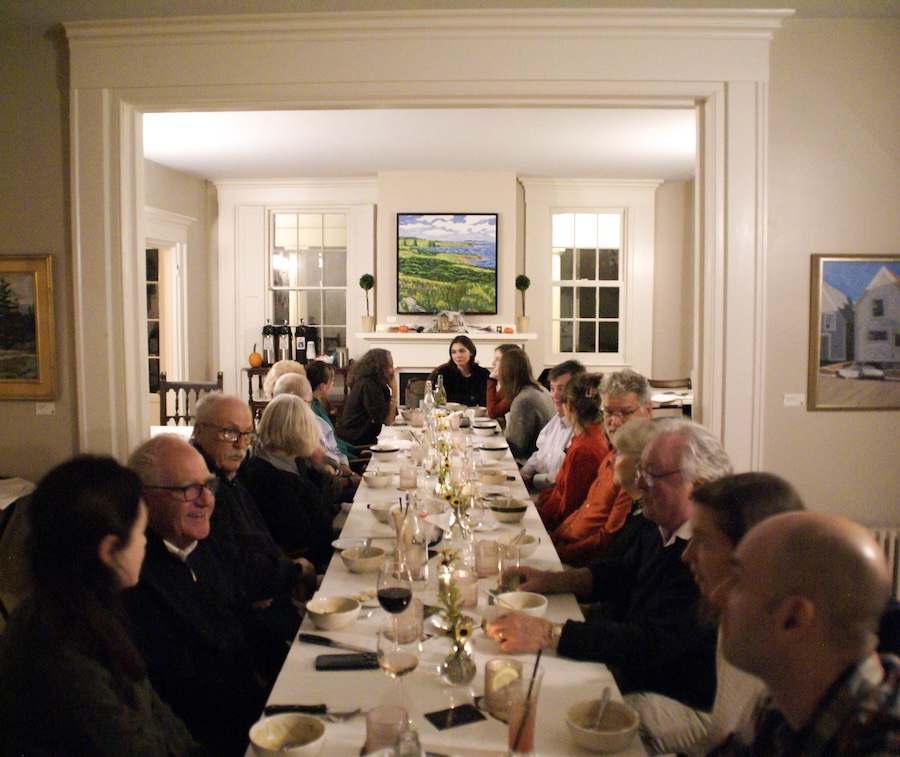Student Research: Turning a Love of ‘Star Wars’ into a Critical Examination of Gender
By Aleksia Silverman ’19Sydney Benjamin ’19 has merged her love of ’80s films and her interest in the representation, broadly, of race and gender in mass media into an independent study exploring gender in Star Wars.
Benjamin, an English and Gender, Women’s and Sexuality double major, says she appreciates ’80s movies both because watching them evokes a “nostalgia for something easier,” and because the films themselves “speak directly to the ultimate human struggles in a fun way.”


Originally, Benjamin wanted to complete an independent study — a semester-long projects that allow students in any discipline to pursue their academic interest under the close guidance of a faculty member — and research gender in ’80s reboot films. Jennifer Scanlon, director of the Gender, Women’s and Sexuality Studies department and Benjamin’s project advisor, helped her hone in on Star Wars, a franchise Benjamin has loved since she was young.
Benjamin describes Star Wars as an “obsession that never really left.” Her mother, who saw A New Hope in theaters as a young girl, first introduced Benjamin to the iconic films. And after the release of the prequels, Benjamin consequently “spent a lot of…childhood playing Jedi with my brother.”
Imagining little girls going to Star Wars and having Rey
be the one they look up to is great. —Sydney Benjamin '19
After entering Bowdoin and becoming interested in Gender, Women’s and Sexuality Studies, Benjamin viewed the development of a Star Wars sequel trilogy featuring a female protagonist as both an exciting development for the franchise, and the start of a renewed interest for her.
She describes The Force Awakensas not only “the best movie-going experience,” but a transformative one as well. “I immediately knew I wanted to do work with it,” Benjamin said. “This is what I wanted to do. I wanted to go write scripts. It just built on itself from childhood obsession to an adult academic interest.”
Benjamin meets once a week with Scanlon to go over her progress, summarize her research, and exchange ideas. The two worked together to design a syllabus that includes two short papers (the first focusing on the prequels, the second on the original three films) and a final, cumulative research paper that draws on the two most recent movies in addition to the previous six. Her semester will be divided into three sections, each looking at the different female protagonist of a set of trilogies — Princess Leia, Padmé Amidala, and Rey — and evaluating what that movie is able to able to talk about, and able to say, using each of these characters.
Benjamin is, of course, re-watching the films, but her conclusions are also informed by film criticism, gender theory, interviews, and critical essays that examine the role of religion and philosophy in Star Wars.
Original series:
IV – A New Hope(1977)
V – The Empire Strikes Back(1980)
VI – Return of the Jedi(1983)
Prequel trilogy:
I – The Phantom Menace(1999)
II – Attack of the Clones(2002)
III – Revenge of the Sith(2005)
Sequel trilogy:
VII – The Force Awakens(2015)
VIII – The Last Jedi(2017)
IX — Episode IX(2019)
And while the pool of research on gender in Star Wars is limited, some of the most surprising conclusions Benjamin has come to are about male friendships. Female protagonists have profound effects on the way that male characters form friendships and interact. “The first series is about getting in touch with your emotions. It’s a very positive outlook on masculinity,” she said. This is in conflict with the aggressive behavior shown in the prequels. And, understanding this set of movies has posed a challenge for Benjamin. While she argues that we might be tempted to see Star Wars as on the cutting edge, the prequel trilogy was a “big step back in terms of the special effects of the time…and very conservative in terms of its portrayal of gender.”
For Benjamin, however, the last two movies provide an optimist outlook for the future — both for Star Wars and for gender representation in film. “There’s a huge difference between idealizing the love interest and idealizing the protagonist,” Benjamin said. “It’s super important because kids idealize these figures so much. Imagining little girls going to Star Wars and having Rey be the one they look up to is great."



